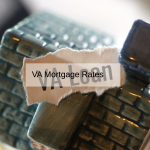The HomeReady Mortgage loans program offers an opportunity for individuals and families to achieve homeownership with more flexible eligibility criteria and lower down payment requirements compared to traditional mortgages. Understanding how to apply for this loan is crucial for those seeking affordable and accessible homeownership opportunities.
Understanding the HomeReady Mortgage Program
The HomeReady Mortgage program is backed by Fannie Mae and is designed to assist low to moderate-income borrowers in purchasing a home loans with as little as 3% down. It offers competitive interest rates and allows for flexible sources of income to qualify, including income from non-borrowing household members.
Key Features of HomeReady Mortgage:
- Low down payment requirement: With a down payment as low as 3%, the HomeReady Mortgage program makes homeownership more accessible to a wider range of borrowers.
- Flexible income sources: The program considers income from non-borrowing household members, such as family members or renters, to help borrowers qualify for the loan.
- Reduced private mortgage insurance (PMI): Borrowers may be eligible for reduced PMI rates, which can help lower monthly mortgage payments.
- Educational requirements: Completion of a homeownership education course is mandatory for first-time homebuyers, providing valuable insights into the home buying process.
Steps to Apply for a HomeReady Mortgage
Applying for a HomeReady Mortgage involves several steps, from assessing eligibility to gathering documentation and submitting an application to a lender.
Determine Eligibility
Before applying for a HomeReady Mortgage, borrowers should ensure they meet the program's eligibility criteria. Key factors to consider include:
Income requirements: Borrowers must meet income eligibility limits, which vary based on location and household size.
Credit score: While there is no minimum credit score requirement, borrowers should have a reasonable credit history and demonstrate a willingness and ability to repay the loan.
Occupancy requirements: Borrowers must intend to occupy the property as their primary residence.
Find a Participating Lender
HomeReady Mortgages are offered through participating lenders approved by Fannie Mae. Borrowers should research and compare mortgage loan lenders to find one that offers competitive rates and excellent customer service. It's essential to communicate openly with the lender and ask questions about the HomeReady Mortgage program and the application process.
Complete a Homeownership Education Course
As part of the HomeReady Mortgage program requirements, borrowers must complete a homeownership education course offered by a HUD-approved counseling agency. These courses cover topics such as budgeting, credit management, and the home buying process. Completion of the course demonstrates the borrower's commitment to responsible homeownership.
Gather Required Documentation
To apply for a HomeReady Mortgage, borrowers need to gather documentation to verify their income, assets, and employment history. Commonly required documents include:
Proof of income, such as pay stubs, W-2 forms, and tax returns.
Bank statements and asset documentation, including savings and investment accounts.
Employment history and verification of employment.
Submit the Application
Once all necessary documentation is gathered, borrowers can submit a formal application for a HomeReady Mortgage through their chosen lender. The lender will review the application, verify the information provided, and assess the borrower's eligibility for the program.
Complete the Underwriting Process
During the underwriting process, the lender evaluates the borrower's creditworthiness, income stability, and overall financial situation to determine whether they qualify for a HomeReady Mortgage. This process may involve additional documentation requests and thorough review of the borrower's financial history.
Close the Loan
If the borrower's application is approved and the underwriting process is complete, the next step is to close the home loan rates. During the closing process, the borrower signs the necessary paperwork, pays any closing costs or fees, and officially becomes the owner of the property.
Benefits of the HomeReady Mortgage Program
The HomeReady Mortgage program offers several benefits for eligible borrowers, including:
- Lower down payment: With a down payment as low as 3%, borrowers can purchase a home with less money upfront.
- Flexible income requirements: The program considers income from non-borrowing household members, which can help borrowers qualify for a higher loan amount.
- Competitive interest rates: HomeReady Mortgages offer competitive interest rates, making homeownership more affordable for low to moderate-income borrowers.
- Reduced PMI rates: Borrowers may qualify for reduced private mortgage insurance rates, resulting in lower monthly mortgage payments.
The HomeReady Mortgage program provides a valuable opportunity for individuals and families to achieve the dream of homeownership. By understanding the eligibility criteria, completing a homeownership education course, and working with an approved lender, borrowers can navigate the application process with confidence and secure financing for their new home. With its low down payment requirements, flexible income guidelines, and competitive interest rates, the HomeReady Mortgage program opens doors to homeownership for a wider range of borrowers.
Frequently Asked Questions (FAQ) - HomeReady Mortgage: How To Apply For This Loan
Q1: What is a HomeReady Mortgage?
A1: HomeReady Mortgage is a program offered by Fannie Mae, designed to help low to moderate-income borrowers purchase a home with a low down payment and flexible eligibility requirements. It is an affordable and accessible option for first-time home buyers loans and those seeking affordable housing solutions.
Q2: Who is eligible for a HomeReady Mortgage?
A2: To be eligible for a HomeReady Mortgage, borrowers must meet certain income requirements, which vary based on the location of the property and the number of people living in the household. Borrowers should also complete a homebuyer education course to qualify for this program.
Q3: What are the benefits of a HomeReady Mortgage?
A3: The benefits of a HomeReady Mortgage include:
- Low down payment options as low as 3%
- Flexible eligibility criteria, including non-traditional sources of income
- Reduced private mortgage insurance (PMI) premiums, resulting in lower monthly payments
- The ability to use income from non-borrowing household members to qualify for the loan
Q4: How do I apply for a HomeReady Mortgage?
A4: To apply for a HomeReady Mortgage, follow these steps:
- Find a Participating Lender: Start by researching lenders that offer HomeReady Mortgages and choose one that meets your needs.
- Gather Necessary Documents: Gather documents such as pay stubs, W-2 forms, tax returns, bank statements, and proof of any additional income sources.
- Complete a Homeownership Education Course: Complete a homeownership education course approved by Fannie Mae. This course is mandatory for HomeReady Mortgage applicants.
- Submit Your Application: Submit your mortgage application along with all required documentation to your chosen lender.
- Attend Loan Counseling Session: Your lender may require you to attend a loan counseling session to discuss the terms and conditions of the HomeReady Mortgage.
Q5: What documents are required for a HomeReady Mortgage application?
A5: The documents required for a HomeReady Mortgage application typically include:
- Proof of income, such as pay stubs, W-2 forms, and tax returns
- Bank statements and other financial assets
- Employment history and verification of employment
- Proof of homeownership education course completion
- Any additional documentation required by the lender or Fannie Mae
Q6: How is income calculated for a HomeReady Mortgage application?
A6: Income for a HomeReady Mortgage loan rates application is calculated based on the borrower's gross monthly income from all sources, including employment, self-employment, rental income, alimony, child support, and other sources. Non-borrower household income may also be considered.
Q7: Can I use gifts or grants for the down payment on a HomeReady Mortgage?
A7: Yes, borrowers can use gifts, grants, and other eligible sources of funds for the down payment and closing costs on a HomeReady Mortgage. However, certain restrictions may apply, and borrowers should consult with their lender for specific guidelines.
Q8: What credit score is required for a HomeReady Mortgage?
A8: While there is no specific minimum credit score requirement for a HomeReady Mortgage, borrowers should have a credit score of at least 620 to qualify for competitive interest rates and favorable terms. Lenders may also consider other factors such as debt-to-income ratio and credit history.
Q9: Can I refinance an existing mortgage with a HomeReady Mortgage?
A9: Yes, borrowers may be eligible to refinance an existing mortgage with a HomeReady Mortgage, provided they meet the program's eligibility criteria and requirements. Refinancing options may vary depending on factors such as loan-to-value ratio, credit score, and current mortgage terms.
Q10: What happens after I submit my HomeReady Mortgage application?
A10: After you submit your HomeReady Mortgage application, the lender will review your documentation, verify your income and employment history, and assess your creditworthiness. You may be asked to provide additional information or documentation during the underwriting process. Once approved, you will proceed to the closing stage to finalize the loan agreement.
Q11: Are there any special considerations for borrowers with non-traditional sources of income?
A11: Yes, HomeReady Mortgages offer flexibility for borrowers with non-traditional sources of income, such as freelance work, rental income, or income from roommates. Lenders may consider these sources of income when calculating debt-to-income ratios and qualifying for the loan.
Q12: How long does it take to process a HomeReady Mortgage application?
A12: The processing time for a HomeReady Mortgage application can vary depending on factors such as the lender's workload, the complexity of the application, and the efficiency of document submission by the borrower. On average, the process may take several weeks to complete from application submission to home loan rates approval.
















